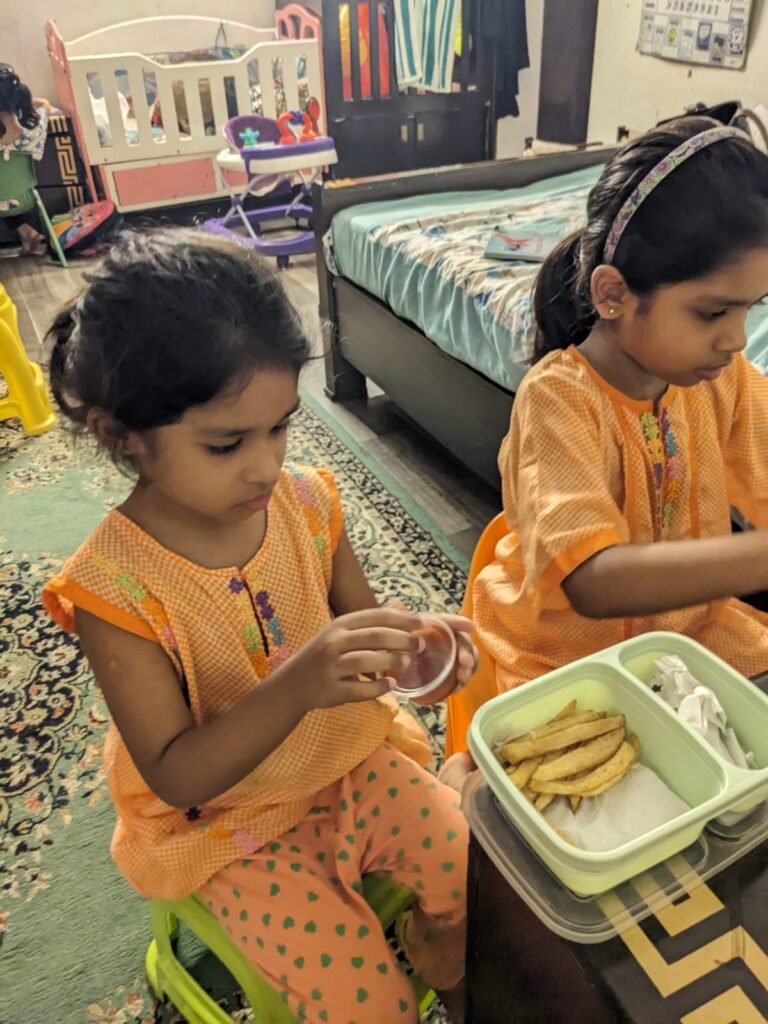Helping Special Needs Children Eat Healthier – A Simple Guide for Pakistani Parents
A parent-friendly guide for Pakistani families on how to help special needs children with sensory issues eat healthier. Includes local food ideas and easy tips.
Introducing healthy food to any child can be a challenge—but for children with autism, ADHD, or sensory processing issues, it can feel almost impossible. Many special needs children have strong reactions to textures, smells, and even colors of food. Some prefer eating the same meal every day, while others refuse to eat anything but snacks or bread.
As parents, it’s easy to feel frustrated or worried—but there is hope. With small, patient steps, you can guide your child toward better nutrition, even with strong sensory preferences.
Here’s a simple, realistic guide tailored for Pakistani parents:

1. Start Small – Don’t Force It
If your child only eats a few foods (like bread, chips, or rice), don’t try to completely change their diet overnight. Instead, add small changes to what they already like.
For example:
- If they eat white bread, offer bran bread once a week.
- If they like fries, try air-fried sweet potatoes.
- If they enjoy daal-chawal, start mixing masoor with moong daal or add small bits of vegetables blended into the daal.
2. Focus on Texture and Smell First
Many special needs children are not rejecting the food itself—they’re reacting to its texture, temperature, or smell.
What You Can Try:
- Dry textures like roti chips (baked) or dry khichdi may feel safer than soft curries.
- Serve food at room temperature if your child reacts strongly to hot smells.
- Avoid mixing too many foods together. Serve each item separately on the plate so your child doesn’t feel overwhelmed.
3. Use Familiar Pakistani Foods Creatively
Healthy doesn’t mean boring! Many Pakistani dishes can be adapted to meet your child’s needs.
Here are a few easy ideas:
- Paratha with mashed vegetables inside (try aalu, lauki, or carrots)
- Fruit chaat with bananas, apples, and oranges (skip chaat masala if your child dislikes strong smells)
- Egg muffins made in a cupcake tray with eggs and finely chopped spinach
- Kheer with oats and dates instead of sugar
If your child resists trying something new, offer it next to a safe food they already like.
4. Make Meals a Calm and Positive Time
Children with special needs can be extra sensitive to stress, especially during mealtimes.
What can help:
- Eat with them—model the behavior you want to see.
- Don’t pressure or scold. If they don’t try the food, it’s okay. Keep offering it gently over days or weeks.
- Keep mealtime short (15–20 minutes), with limited distractions.
5. Get Them Involved
Even if your child struggles to speak or focus, they might enjoy:
- Washing vegetables
- Picking between two fruits
- Stirring daal (with help)
This builds comfort and curiosity around food. Over time, children who help in the kitchen are more open to tasting what they made.
6. Supplements and Professional Help
Sometimes, food alone isn’t enough. Talk to your child’s pediatrician or nutritionist about adding:
- Multivitamin syrups
- Iron or calcium drops
- Specialized drinks (like PediaSure or Ensure, if recommended)
If eating issues are severe, a speech therapist or occupational therapist can help your child work through oral motor and sensory challenges.
7. Celebrate the Small Wins
If your child tries a new fruit, chews a different texture, or even touches a disliked food—that’s progress. These small steps build trust and healthy habits over time.
Final Thought
Helping your special needs child eat better isn’t a one-day job. But with love, patience, and creativity, even picky eaters can begin to enjoy a wider range of foods. Every child is unique—there’s no one right way, only the one that works for you and your family.
Gateway’s therapists and educators regularly guide parents through nutrition and sensory-friendly food habits. If you need help, don’t hesitate to reach out.
Gateway International School: Where every child’s day is a story worth sharing.
Come Visit Us Today! 🌟💖 Meet our dedicated staff and supportive management.
Contact Us: 0323-4197845, 042-32350758
Follow Us on Social Media: Click here to join our Facebook page, Follow us on Instagram Or Here to read our Blog












